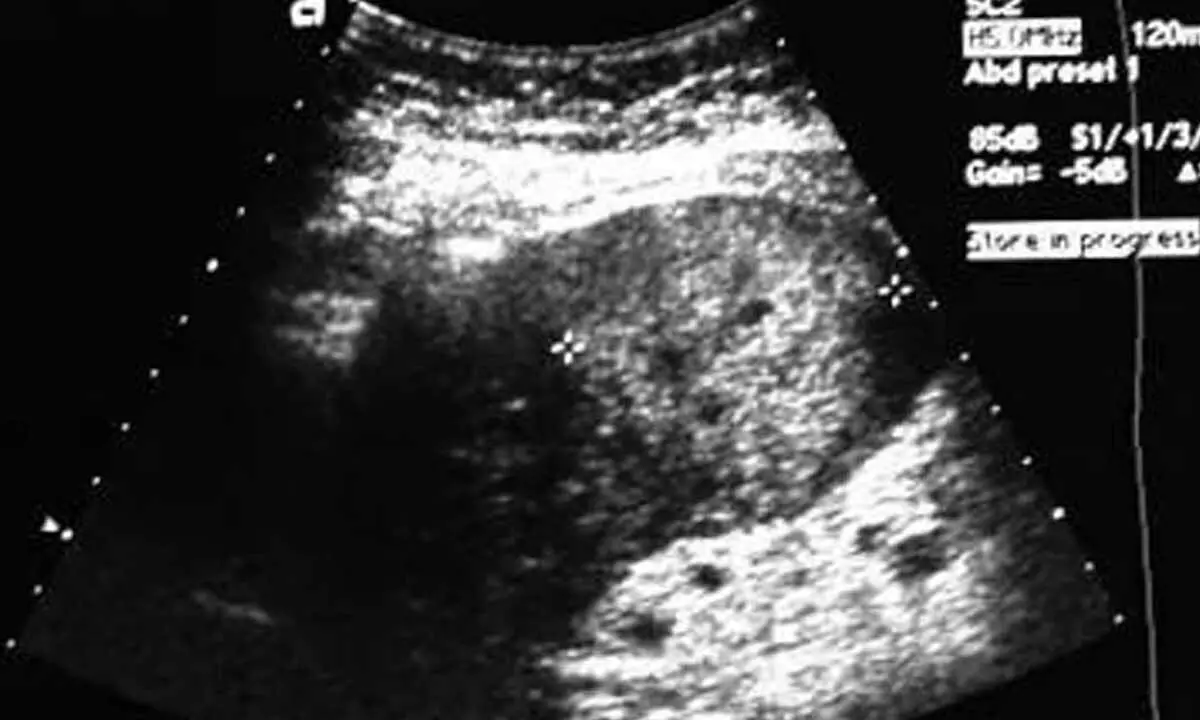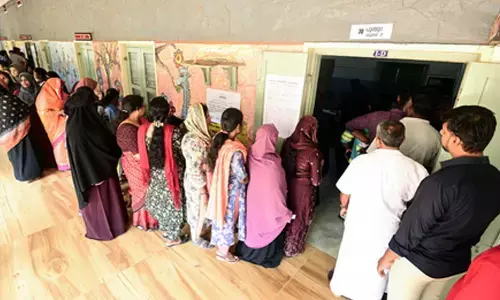Bengaluru: 4-year-old girl overcomes rare and critical case of Acute Liver Failure and Adenovirus infection

Bengaluru: 4-year-old girl overcomes rare and critical case of Acute Liver Failure and Adenovirus infection
Reena (name changed), the eldest of two siblings, is a happy and cheerful 4-year-old girl whose parents operate a small business on the outskirts of Bengaluru.
Bengaluru: Reena (name changed), the eldest of two siblings, is a happy and cheerful 4-year-old girl whose parents operate a small business on the outskirts of Bengaluru. Everything seemed to be going exactly right for Reena until she had frequent fever spikes and bouts of vomiting. Initially, they took her to a nearby nursing home for treatment, but when her condition failed to improve, they were referred to SPARSH Hospital. At SPARSH, a team of Liver specialists and transplant surgeons, Paediatric Intensive Care, and other specialties worked together to assess the complex situation that Reena was facing.
Reena was brought to SPARSH Hospital, Yeshwantpur, with high fever, vomiting, drowsiness and intermittent irritability. Upon initial assessment, doctors found her liver test results to be grossly abnormal. Specifically, the SGOT and SGPT tests, which measure liver enzymes, were extremely high at 36000 and 29000 respectively. These levels far exceeded the normal range of 40-50. Her clotting parameters were significantly outside the normal range. The PT and INR (clotting tests) values were extremely abnormal, indicating that her blood was not clotting properly. This is a rare occurrence in a 4-year-old.
The above parameters are typically associated with Acute Liver Failure, a condition that is extremely dangerous and life-threatening. It often requires a liver transplant or results in death if not referred to a specialised liver centre on time for liver specific treatment.
The family was informed of the seriousness of the situation and advised that the girl might need a liver transplant if she did not recover quickly. Coming to terms with an unexpected and critical condition like Acute Liver Failure is never easy, but the medical team at SPARSH was a constant source of support and reassurance for the family. They worked closely with the family, keeping them informed about Reena's condition at every step.
Reena showed no signs of improvement and experienced blood vomiting several times, indicating poor blood clotting. In addition, the medical team also found that she was infected with Adenovirus, a type of virus which is of late causing infections in the eyes, stomach, and respiratory system in epidemic proportions. In some instances, it can affect the liver too as in Reena's case.
Over the last few weeks, about 12,000 cases of Adenovirus cases were reported in West Bengal and more than 3000 children were hospitalised with flu-like symptoms. Meanwhile, in Karnataka, there has been a rise in the number of Adenovirus cases, with approximately 37 cases recorded. In most cases, no specific treatment is required and they recover with supportive care. However, there are some cases where kids don't get better and their condition worsens over 3-4 days. In such instances, parents must seek the advice of a specialist without any delay.
The treating team worked towards correcting all her parameters and gave her medications and blood products to restore her clotting mechanism and to create an environment for her liver to regenerate. When her kidney function started to worsen, the renal team was called in for a possible temporary dialysis to remove toxins that the liver was throwing into her bloodstream. The team was aware that it would be challenging to run dialysis on a young child. The team also planned to start a plasma exchange to clear toxins from her blood. Moreover, they made arrangements for a transplant, in case it became necessary, while aiming to save her without
resorting to it.
Reena's recovery
Over the next 24-48 hours, Reena showed signs of recovery in her blood tests, but her kidney function continued to worsen and she was still irritable. A CT scan was performed to assess whether there was any swelling in her brain, and fortunately, there was none, which was a relief for the medical team. However, her lungs were found to be filled with fluid, which could affect her breathing. To avoid putting her on a ventilator, the team started treating her for the fluid in her lungs.
After a stressful 48 hours, Reena woke up and called her mother by her side. It was a moment of absolute relief and joy for the entire medical team that treated her. With careful attention and support to her organs, her liver function parameters slowly normalised and her condition gradually improved.
The Consultant in Hepatology and Liver Transplantation, SPARSH Hospital, Dr. Naveen Ganjoo said, "The key to treat Acute Liver Failure is early recognition and prompt referral to a specialised centre that is equipped to handle complex cases. We were thrilled to see Reena recover without having to go through a liver transplant. While some kids recover with medical management alone, others may require a liver transplant. In many cases, the cause of acute liver failure cannot be determined, but it can be due to infections, drugs, metabolic disorders, immune-related conditions, and other factors. Aggressive management in a dedicated paediatric liver unit can lead to better outcomes and decreased mortality and morbidity. In these circumstances, Liver transplant is the standard of care but we should always try our best to save patients without one and leave no stones unturned"
The Consultant Paediatrician and Paediatric Intensivist, SPARSH Hospital, Dr. Anil MU said, "There has been a noticeable increase in the number of adenovirus cases in children. They often exhibit high fever, eye redness, cold, and cough symptoms. Although it is typically a self-limiting illness, it can occasionally result in rare complications such as Acute Liver Failure. The diagnosis of Acute Liver Failure can be challenging for families to accept because it leads to sudden complications and it progresses rapidly. It is of utmost importance to refer the patient to a specialized center that is equipped with a multidisciplinary team to handle complex cases like this. For example, in Reena's case, our team was well-prepared for any potential complications and were ready to take swift action if there were any unexpected developments. Over a course of ten days, Reena responded to our medications and she is now on the path to recovery"
Acute Liver Failure is a condition that requires serious attention, but there are proactive measures that can help prevent it. Vaccinating children against viruses like Hepatitis A, B, and the flu, which can harm the liver, is crucial. Additionally, parents can ensure the safety of their children by administering the appropriate dosage of paracetamol and keeping it out of reach. By taking these steps, the likelihood of liver injury, particularly in children, can be
significantly reduced.

















